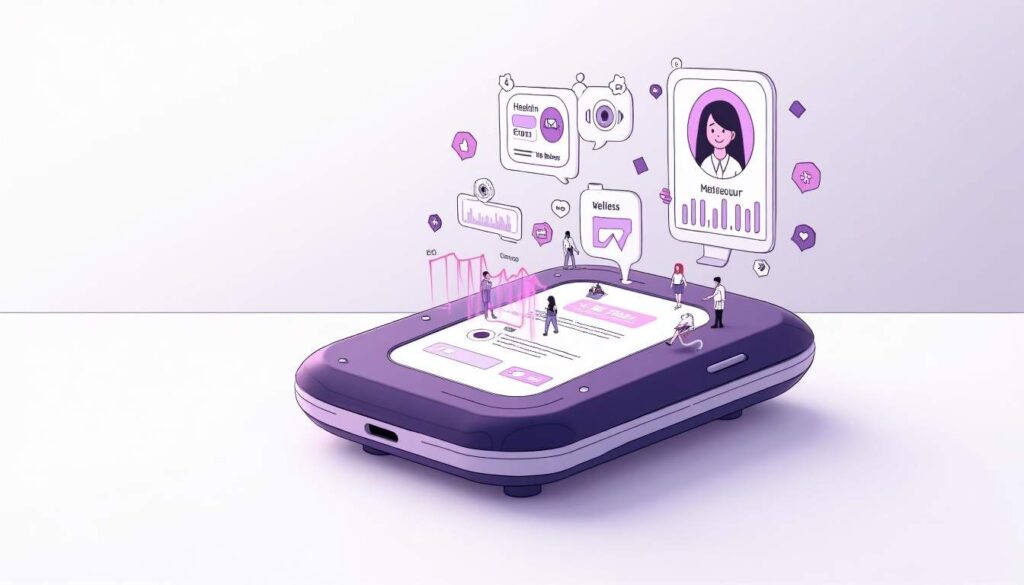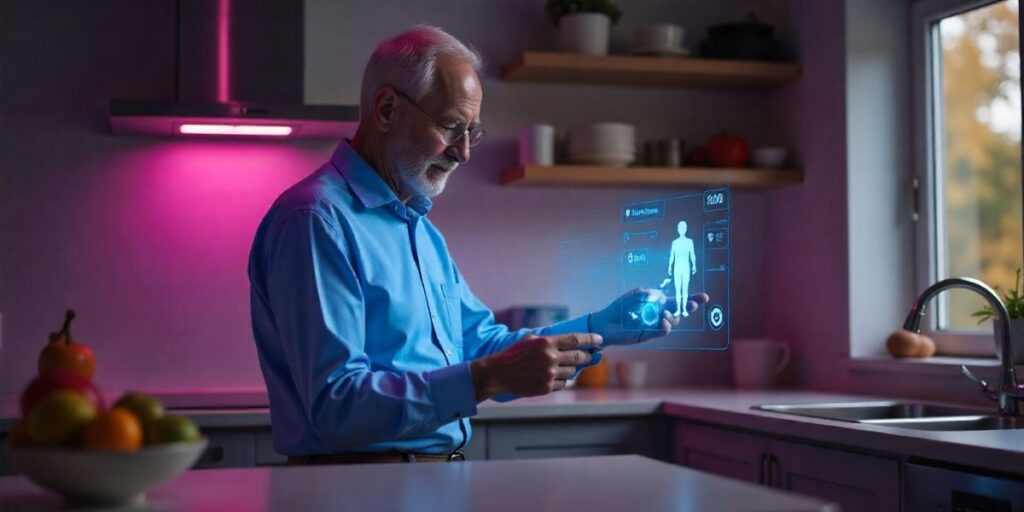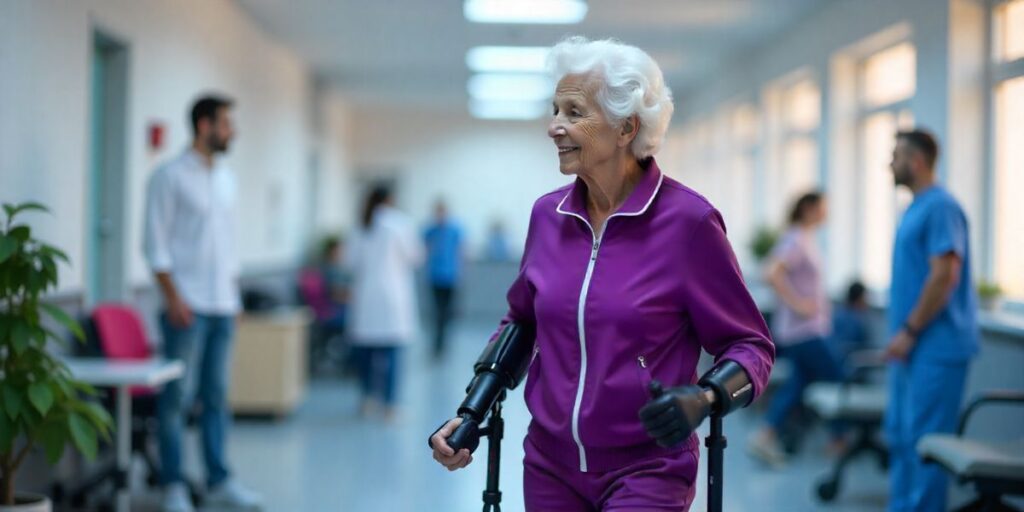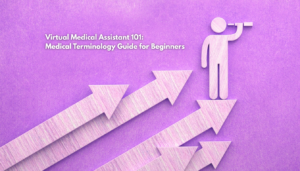Benefits of a Personal Medical Assistant: The Future of Healthcare
10 Sep 2025 By: Vlade Legaspi
Updated

A personal medical assistant is an AI-powered health tool that helps you manage care day to day with reminders, symptom tracking, and personalized guidance based on your data. It can prompt medication times, help schedule appointments, answer basic health questions, and share useful updates with your doctor between visits. For example, someone with diabetes may get daily blood sugar check reminders and tailored diet tips, while abnormal readings trigger an alert for follow-up.
Understanding Personal Medical Assistants: What Are They?

Defining the Concept
A The system includes three main components which are AI chatbots and virtual coaches and smart wearables with tracking functionality. The modern personal medical assistant provides users with AI-driven recommendations and machine learning-based predictions through real personal medical assistant operates as a digital application which enables users to handle their medical requirements and wellness needs time data analysis.
The system functions as a personal medical assistant by sending users alerts for medication intake and symptom monitoring and appointment scheduling and health-related question response. The system identifies potential risks through pattern recognition which enables users to take immediate action. The system enables users to maintain control of their health while doctors receive immediate access to data for improved decision-making.
Current Technologies Powering PMAs
Several technologies underpin the effectiveness of personal medical assistants:
- Artificial Intelligence (AI) and Machine Learning: These enable PMAs to learn from user data and improve recommendations over time.
- Natural Language Processing (NLP): Allows users to interact with PMAs conversationally, making the experience intuitive and accessible.
- Wearable Sensors and IoT Devices: Collect continuous health data such as heart rate, sleep patterns, glucose levels, and physical activity.
- Cloud Computing: Facilitates the storage and analysis of large datasets securely and efficiently.
The personal medical assistant now also includestelehealth tools. Users can talk to doctors, get follow-ups, and even mental health help without visiting a clinic. This helps people in remote areas or with mobility issues get care easily. Plus, data from a personal medical assistant helps with research and tracks health trends across groups.
Personalized medicine also boosts the power of the personal medical assistant. By studying genes and habits, it gives better health tips. For example, it may suggest diet changes based on genetic risks. As tech grows, the personal medical assistant will play a bigger role in making custom care normal for all.
Enhancing Patient Engagement and Empowerment

Personalized Health Management
One key benefit of a personal medical assistant is its ability to fit care to each person. It uses data like medical history and habits to build custom health plans. This makes advice more useful and treatments more effective.
For example, a diabetic may get daily alerts to check blood sugar, plus meal and exercise tips that match their condition. A personal medical assistant helps people feel in control, which boosts treatment success. It tracks progress over time and shows how changes affect health. This feedback helps users stay on track and lets doctors adjust care to meet changing needs.
Improved Communication with Healthcare Providers
A personal medical assistant acts as a bridge between patients and doctors. It gathers and sorts health data, so doctors don’t rely only on office visits. This steady data flow helps them make better and faster choices.
A personal medical assistant also boosts communication. It reminds patients about visits, meds, and tests, cutting down missed care and errors. It helps patients ask smarter questions during visits and understand their health better. This teamwork between patients and doctors leads to stronger results. As patients get more involved, they feel more in control and satisfied with their care.
Reducing Healthcare Costs and Increasing Accessibility

Lowering the Burden on Healthcare Systems
Rising healthcare costs stem from aging, chronic illness, and pricey treatments. A personal medical assistant can cut these costs by pushing preventive care and avoiding hospital visits.
By tracking health data and warning users early, a personal medical assistant helps stop problems before they grow. WHO’s 2023 report says these tools may cut costs by 15% in rich countries by 2033.
AI in a personal medical assistant also boosts care by spotting health trends fast. It gives custom tips and preventive steps to match each user. This smart care reduces system costs and helps people stay healthy by acting early, not late.
Expanding Access to Care in Underserved Areas
In rural areas with few doctors, a personal medical assistant helps fill the gap. It gives health checks, tips, and tracking without needing travel or high costs.
For example, it can help manage asthma or high blood pressure by watching symptoms and alerting doctors when needed. This improves care and builds health equality.
A personal medical assistant also teaches people about health. It shares tips on food, exercise, and prevention, helping them make smart choices. This boosts community health, lowers care demands, and supports long-term care. It also builds trust between patients and doctors through better contact.
Supporting Chronic Disease Management and Mental Health

Chronic Disease Management Made Easier
Chronic diseases like diabetes and heart issues need daily care. A personal medical assistant helps by offering steady tracking and custom advice.
Studies show that using a personal medical assistant boosts medication use by 30% and cuts hospital returns. It tracks signs, meds, and habits to manage illness better.
Wearables paired with a personal medical assistant send live data to doctors, flagging health risks early. This teamwork builds stronger patient-doctor ties and gives patients more control.
Addressing Mental Health Needs
Mental health is vital, yet many lack access to care. A personal medical assistant with mental health tools can help by tracking moods and offering therapy tips and support.
Though not a therapist, a personal medical assistant boosts awareness and gives quick ways to cope. AI chatbots can talk with users and link them to real help if needed.
Its privacy and ease of use can help people open up. A personal medical assistant also shares custom tools like breathing tips and writing prompts to build mental strength.
Privacy, Security, and Ethical Considerations
Protecting Sensitive Health Data
A personal medical assistant handles sensitive health data, so strong privacy and security are a must. Breaches can cause ID theft and break patient trust.
The effects go beyond money. Victims may feel stressed and unsafe in a digital world. So, data protection is key for any personal medical assistant.
Developers must follow rules like HIPAA and GDPR. They need to use encryption, limit access, and be clear on how data is used. This builds trust and accountability.
A personal medical assistant must also give users control over who sees their data. Regular checks and system tests help stop threats before harm is done.
Ethical Use of AI in Healthcare
AI in a personal medical assistant raises key ethical issues like bias, fairness, and clear decision-making. AI must learn from diverse data to avoid harming minority groups.
Many of these groups were left out in past studies, so training must be fair. A personal medical assistant should also explain its limits and guide users to doctors for big choices.
Tech teams, doctors, ethicists, and patients must work together to keep a personal medical assistant safe and fair. This teamwork improves ethics and drives smart innovation.
Patient input is key. Their feedback helps shape better tools. As personal medical assistant tech grows, open talks will build trust and make care better for all.
TRENDING NOW!
High achieving individuals choose to delegate their driving responsibilities and cooking duties and scheduling tasks to obtain more time for their essential activities. The Premier concierge experience at Hudson Yards implements this concept to deliver health care services. The health navigators who work at Hudson Yards serve as personal medical assistants to handle all the complicated aspects of contemporary healthcare. The health navigators assist patients by maintaining medical records and improving doctor-patient communication and insurance management to prevent delays and confusion and save time.
The health navigators at our organization consist of trained professionals who deliver customized support to each patient. The team schedules medical appointments and arranges referrals and provides urgent care assistance to patients regardless of their location. Our team provides immediate specialized medical care and COVID treatment and insurance claim assistance to all patients who require these services. Your navigator from Mount Sinai functions as your healthcare advocate through the entire treatment process while providing you with complete reassurance about your medical care.
Looking Ahead: The Future Landscape of Personal Medical Assistants
Integration with Healthcare Ecosystems
The future of the personal medical assistant depends on linking with full healthcare systems. It must connect to EHRs, pharmacies, labs, and insurance tools.
This full view of a patient’s health helps doctors work faster and give better care. A personal medical assistant helps tie all parts of care together.
More providers now use systems with a personal medical assistant to boost patient results. It helps move data from hospital to home without losing key info.
This smooth flow cuts errors and makes care feel simpler. A personal medical assistant ensures patients get clear, steady support through every care step.
Advancements in AI and Predictive Analytics
As AI grows, the personal medical assistant will get smarter. It will use predictive tools to spot disease early and adjust care based on real-time patient data.
A personal medical assistant may also use genomics and biomarkers to give care based on each person’s genes. This leads to better results with fewer side effects.
With machine learning, a personal medical assistant will learn from big data. It will keep improving its tips as it tracks patient habits and health outcomes.
Empowering Patients and Transforming Healthcare Delivery
A personal medical assistant marks a shift to patient-led care. It helps people take control, leading to better results and a fairer, lasting health system.
As tech improves, teamwork between patients, doctors, and builders will shape the personal medical assistant’s future. This ensures care stays smart and kind.
As the personal medical assistant becomes part of daily life, it boosts health knowledge. People learn to use their data and make smart health choices.
This shift builds a culture of prevention, not just treatment. A personal medical assistant helps people stay well, not just react when they get sick.
The future of health care is smart, connected, and centered around you. A personal medical assistant brings faster care, fewer errors, and better results, all while giving you control.
Now is the time to take charge of your health with the right tools and support by your side. Join Helpsquad Health today and experience care that’s simple, personal, and built for the future.
FAQ’s
What is a personal health assistant in healthcare, according to the article?
In the post, a personal health assistant (also called a personal medical assistant) is described as an AI-driven system, often a mix of chatbots/virtual coaches, wearables, and health apps, that helps people manage wellness, track symptoms, and make day-to-day health decisions with data-backed guidance.
How is a medical digital assistant different from a traditional medical assistant?
A medical digital assistant works through software and connected devices to monitor data (like activity, sleep, or other health signals), deliver reminders, and flag risks early. A traditional medical assistant typically supports care in-person or within a clinic setting, while the digital version supports patients continuously outside visits.
What are the biggest medical assistants benefits for patients?
The article emphasizes benefits like personalized health plans, reminders for meds/tests/appointments, and easier day-to-day follow-through, helping people feel more in control and improving how consistently they stick to treatment routines.
How can a personal medical assistant improve communication with doctors?
It can collect and organize health data between visits, remind patients about visits and tests, and help them show up better prepared with clearer questions. The article frames this as a “bridge” that supports better decisions and teamwork between patient and provider.
How does a personal assistant for doctors reduce workload and system strain?
The post explains that earlier risk detection and more preventive care can reduce avoidable escalations (like hospital visits). It also notes that better tracking and timely alerts can help clinicians act sooner with more complete information.
Can personal medical assistants expand access to care in rural or underserved areas?
Yes. The article argues they can deliver guidance, monitoring, and check-ins without requiring frequent travel, supporting conditions like asthma or high blood pressure while alerting providers when intervention is needed.
How do these tools support chronic disease management and mental health?
For chronic conditions, the article describes daily tracking plus tailored advice and reminders, with wearables sending data to providers to flag risks early. For mental health, it mentions mood tracking and coping support, while noting the tool isn’t a therapist and should connect users to real help when needed.
What privacy and ethics issues should you consider with a medical digital assistant?
The post highlights the need to protect sensitive health data with measures like encryption and access controls, and to follow regulations such as HIPAA and GDPR. It also discusses AI ethics concerns like bias, fairness, and being clear about the tool’s limitations.
Where does HelpSquad’s article get its credibility and supporting information?
The page shows the author (Vlade Legaspi) and an update date (11 Sep 2025). It also references external institutions and frameworks (for example, it cites a WHO 2023 report related to cost reduction and discusses compliance standards like HIPAA/GDPR) to support its points.


